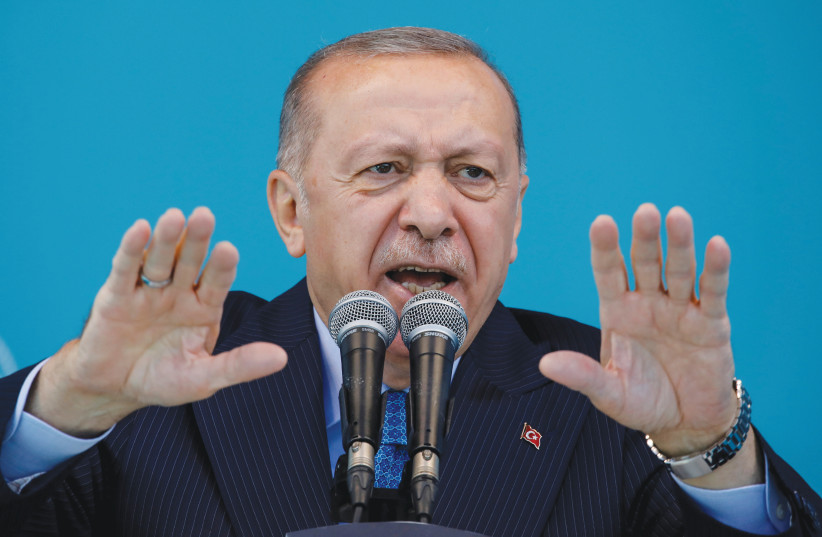Turkish Foreign Minister Mevlüt Çavusoglu is expected to visit Israel on May 26.
Israeli Foreign Ministry political director Alon Bar was in Ankara on Monday to plan the trip with Turkish officials.
Çavusoglu initially announced his plans during President Isaac Herzog’s visit to Turkey in March.
However, at the time, the Foreign Ministry said no such trip was planned, and diplomatic sources in Jerusalem emphasized that the relationship with Turkey needed to be taken step by step and could not be rushed.
The Turkish foreign minister’s visit comes amid a rapprochement between Ankara and Jerusalem initiated by Turkish President Recep Tayyip Erdogan.
Erdogan sent warm wishes to Herzog on Israel’s Independence Day last week, writing, “I sincerely believe that the cooperation between our countries will develop in a way that serves our mutual national interests, as well as regional peace and stability. I extend my best wishes for the health and happiness of Your Excellency, and for the well-being and prosperity of the people of Israel.”

The letter came on the heels of Erdogan’s relatively moderate response to Israeli policing measures in response to Palestinian rioting on the Temple Mount last month.
While over the past decade, Erdogan accused Israel of desecrating the holy site and his government was behind incitement over the issue, his statement this year was on par with most Arab states that have relations with Israel.
Erdogan waited several days before responding to the situation, and then, following a phone call with Herzog, said that the mosque was “raided by fanatical groups.” He expressed sadness at the deaths and injuries at the holy site and called not to allow “provocations and threats to the status and spirituality of al-Aqsa Mosque.”
A senior diplomatic source viewed this as progress at the time, saying, “In the past, every time something would happen, Erdogan wouldn’t call. He would release a sharp condemnation and even say antisemitic things in the media or on Twitter. Now we have something else. He wanted to speak with the president. He wanted a dialogue. This is a turning point.... It is 180 degrees different from what we had before.”
Erdogan’s warming to Israel comes in an election year, as he has sought to repair his country’s ties with various countries with which relations had deteriorated over the years and to improve Turkey’s cratering economy.
